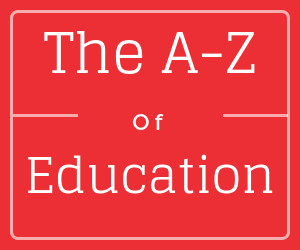Teaching & Learning Strategies, Concepts, and Terms That Every Teacher Must Know: Letters ME

To be considered a competent educator, there are almost 2000 strategies, concepts, and terms that you must know. However, since teachers wear so many hats, who has the time to learn them all? Don’t worry; we have you covered. In this series, we will discuss all the teaching and learning strategies, concepts, and terms that you need to know to be considered an effective educator. There are over 70 articles in this series, so pace yourself. We recommend reading one piece per weekday, which will allow you to complete the series in three to four months. We hope you enjoy it.
Click here to read all the articles in this series.
Mean Length of Utterance (MLU) A method of quantifying language using the average number of morphemes in an utterance. Many professionals use the mean length of utterance as a predictor of the rate of language acquisition.
Mean Refers to the mathematical average of a group of scores, giving a value that is representative of the overall scores.
Meaning Clues Hints and indicators within a specific context, which allow students to decipher the meaning of unfamiliar words. Students recognize that, practically, they can only use a limited number of word choices to retain the intended meaning of a passage.
Meaning Vocabulary A set of words, whether in written or verbal forms, of which a person has comprehension.
Meaningful Learning A method of learning in which newly acquired information is connected to and relates to previously learned knowledge.
Means-Ends Analysis A problem-solving technique in which the learner identifies the goal (ends), the present situation, and the method through which to attain the goal (means) to decrease the perceived gap between the ends and the means.
Media Literacy According to the National Association for Media Literacy Education, media literacy is the ability to access, analyze, evaluate, create, and act using all forms of communication. Media literacy means anything from interpreting emojis to understanding underlying messages in online advertisements to producing viral video content and recognizing native advertising. While media literacy sounds like a practical skill understood by everyone with internet access, it’s astounding how many online users are unaware of their impact on others and their susceptibility to media manipulation.
Mediated Association A type of empathetic arousal in which an adult identifies and names the emotion experienced by a child.
Mediated Learning Experience (MLE) An approach to teaching in which a student is prompted to think more deeply about a task and expand their expertise. This thinking is prompted by teacher suggestions, questions, and cues.
Meeting of the Minds A small-group drama activity in which participants, who are usually knowledgeable in history, science, mathematics, or literature, are interviewed by a “host.” It can be used in all content areas.
Mental Age The tenant that intelligence grows in children as they age and that at any point, a child might be at the appropriate stage of intelligence for their age, below or ahead.
Mental Chronometry A process for measuring intelligence by calculating the time required to process information. This process was developed by Arthur Jensen.
Mental Set The level of readiness to engage in a lesson in students’ attitudes or behavior.
Mental States (or Inner States) The mental condition. Thoughts, emotions, likes, dislikes, preferences, and intentions.
Mentorships The tutoring of classmates or younger student by gifted students. A leadership activity.
Merit Pay The educational philosophy that purports that teachers who produce better student outcomes should be paid more.
Merit Scholarships A form of financial aid that is given by institutions to those who have shown extraordinary intellectual ability, irrespective of their financial need.
Meritocracy A system based on individual achievements and personal merit should warrant higher rewards. For example, a person who achieves at a higher level deserves greater financial rewards based on their own personal merits and hard work.
Metacognition The process of thinking about thinking. The consideration of processes by which problem-solving occurs.
Metacognition The understanding of one’s learning or knowledge about the process of learning. It is also referred to as “thinking about thinking.”
Meta-cognition Thinking at a higher level. Thinking about the process of thinking.
Metacognitive Skills Techniques and abilities essential for learning, studying, or problem-solving.
Metaphysics Is the branch of philosophy that considers the physical universe and the nature of ultimate reality. It asks questions like, real the origin of the world beyond the stars Your consideration of reality as an external creation or an internal construct can influence your metaphysical beliefs and perspectives and your teaching. Regardless of your definition of reality, the exploration and categorization of the physical universe form the foundation of several school subjects.
